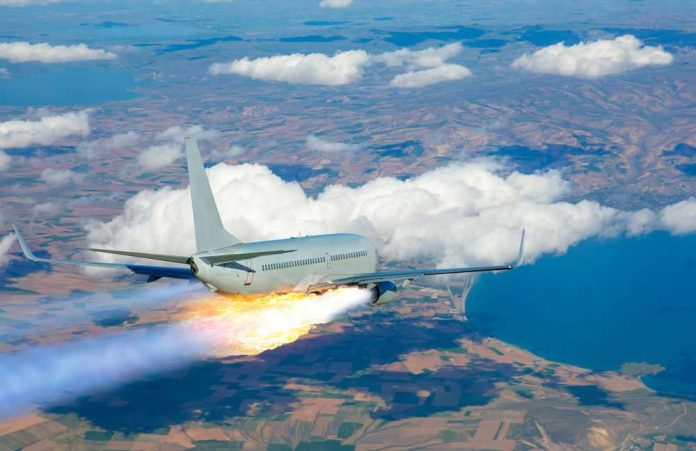
Russia’s admission of downing an Azerbaijani plane 10 months after the incident raises profound questions about international aviation safety and geopolitical tensions.
Story Overview
- Russia admitted to downing the Azerbaijani plane 10 months after the crash.
- The incident resulted in the tragic loss of 38 lives.
- Russia’s admission came amid heightened military activities and diplomatic tensions.
- The event draws parallels to previous aviation incidents involving Russia.
Russia’s Delayed Admission
On December 25, 2024, an Azerbaijan Airlines Embraer 190 passenger jet was tragically downed by a Russian surface-to-air missile near Aktau, Kazakhstan. The incident resulted in the loss of 38 lives. For nearly a year, Russia denied involvement, attributing the crash to other factors. However, on October 9, 2025, during a summit in Dushanbe, President Vladimir Putin acknowledged Russian responsibility, marking a significant shift in Russia’s stance.
This acknowledgment follows months of diplomatic tension and accusations from Azerbaijan, which previously claimed to possess evidence of Russian involvement, including satellite jamming. Russia’s admission, though delayed, signifies a rare moment of accountability in a region fraught with geopolitical complexities and military activities.
Implications for Aviation Safety
The downing of Flight 8432 underscores the perilous overlap between civilian and military airspace. The incident occurred during Russian anti-drone operations, highlighting the vulnerabilities faced by civilian aircraft in conflict zones. Aviation safety experts stress the need for clear airspace management protocols and transparent investigations to prevent such tragedies. The parallels to the 2014 MH17 incident, where a Russian missile downed a civilian airliner over Ukraine, are evident, sparking renewed debate over state accountability.
Beyond immediate safety concerns, Russia’s admission could have long-term implications for its participation in international aviation bodies. The International Civil Aviation Organization (ICAO) and other regulators might impose stricter oversight on Russian airspace management, potentially affecting Russia’s aviation sector and diplomatic standing.
Diplomatic Fallout
Azerbaijan, seeking justice for the victims, remains determined to pursue legal action against Russia in international courts. President Ilham Aliyev has been vocal about Russia’s attempts to “hush up” the incident, emphasizing Azerbaijan’s commitment to holding Russia accountable. This development has strained Russia-Azerbaijan relations, exacerbating existing tensions over regional security and airspace management.
The international community, particularly aviation safety bodies, continues to scrutinize Russia’s military conduct in civilian airspace. There is growing pressure to ensure accountability and prevent future incidents. For Russia, managing the diplomatic fallout while maintaining regional military dominance poses a significant challenge.
Broader Implications
The downing of the Azerbaijani plane has broader implications for the aviation industry and regional geopolitics. Economically, Azerbaijan may seek compensation, while the aviation insurance sector could face increased scrutiny over coverage in conflict zones. Socially, the incident has sparked public outrage in Azerbaijan, with families of the victims demanding justice and transparency.
Politically, the event further isolates Russia on the international stage, especially in light of previous aviation incidents. The potential for sanctions or legal actions looms, as Azerbaijan leverages international law and public opinion to seek redress. The incident underscores the need for stringent airspace protocols and heightened awareness of military-civilian airspace dynamics.
The incident serves as a somber reminder of the stakes involved in conflict zones and the critical importance of clear communication and accountability. As the international community grapples with the implications, the focus remains on preventing future tragedies and fostering a safer aviation environment.



